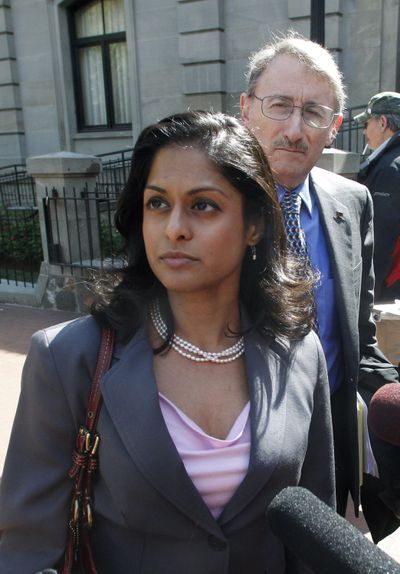No-fly list challenged as threat to liberty
Plaintiffs argue air travel a right

PORTLAND – To federal officials, being on the no-fly list isn’t such a big deal. Sure, you can’t board a plane, but options abound, government lawyers said at a hearing Friday.
Sick relative? Take a boat. New baby in the family? Perhaps a train.
A federal judge in Portland said that’s akin to saying that people might as well take a rocket ship or a Star Trek transporter.
“Their argument deserves more credit than that,” said U.S. District Judge Anna J. Brown, who took a dim view of the U.S. government’s contention that its no-fly list isn’t effectively a ban on all travel.
Thirteen people are suing the federal government, arguing that their placement on the no-fly list deprives them of a fundamental liberty to travel by air.
Friday’s arguments were the first hearing on the merits of the case, which dates to 2010. The plaintiffs, four of them U.S. military veterans, are suing to be either removed from the list or told why they are on it.
After the lawsuit was filed, the case moved between district and appellate courts before a decision last summer by the 9th U.S. Circuit Court of Appeals put the lawsuit back under Brown’s jurisdiction.
The question of air travel as a right versus a convenience is central to determining whether the men have been deprived of their liberty, as they argue they have.
Brown said that without placement on the no-fly list, people can get on airplanes, and she asked Justice Department attorney Scott Risner how he can argue that such circumstances imply that air travel isn’t, inherently, a right.
“Everyone has a right to go to the airport and board an aircraft,” she said. “How does that argument you’re making (conform) to reality?”
The no-fly list, a well-protected government secret, decides who may fly from U.S. airports. It is also, according to testimony, shared with operators of passenger ships as well as 22 other countries.
The FBI has said the list requires secrecy to protect sensitive investigations and to avoid giving terrorists clues for avoiding detection.
The plaintiffs argue that being on the list smears their reputation by branding them as terrorists. Several of the people who filed suit have been surrounded at airport security areas, detained and interrogated.
Nusrat Choudhury, an American Civil Liberties Union lawyer representing the plaintiffs, said the no-fly list is a “draconian restriction” that has blocked the men on the list from visiting spouses overseas or taking a Muslim parent on a pilgrimage to Mecca.
Risner said placement on the list doesn’t stop people from traveling, and stopping people from using one mode of travel doesn’t deprive them of their liberty. That’s key in determining whether the government must ensure due process and whether it’s constitutional to put people on the list.
“We’re not suggesting that there’s not a convenience in air travel,” Risner said. “(But) there’s no right to travel without impediments. That’s what’s happening here.
“I think that air travel is unique, and that’s true in convenience, and that’s true because of the threat of terrorist attacks.”
Brown noted that sea and land travel may not satisfy the need to visit a sick relative in time, and the plaintiffs “don’t have transporter rooms like in Star Trek.”
The judge said she didn’t know when she will issue a ruling.